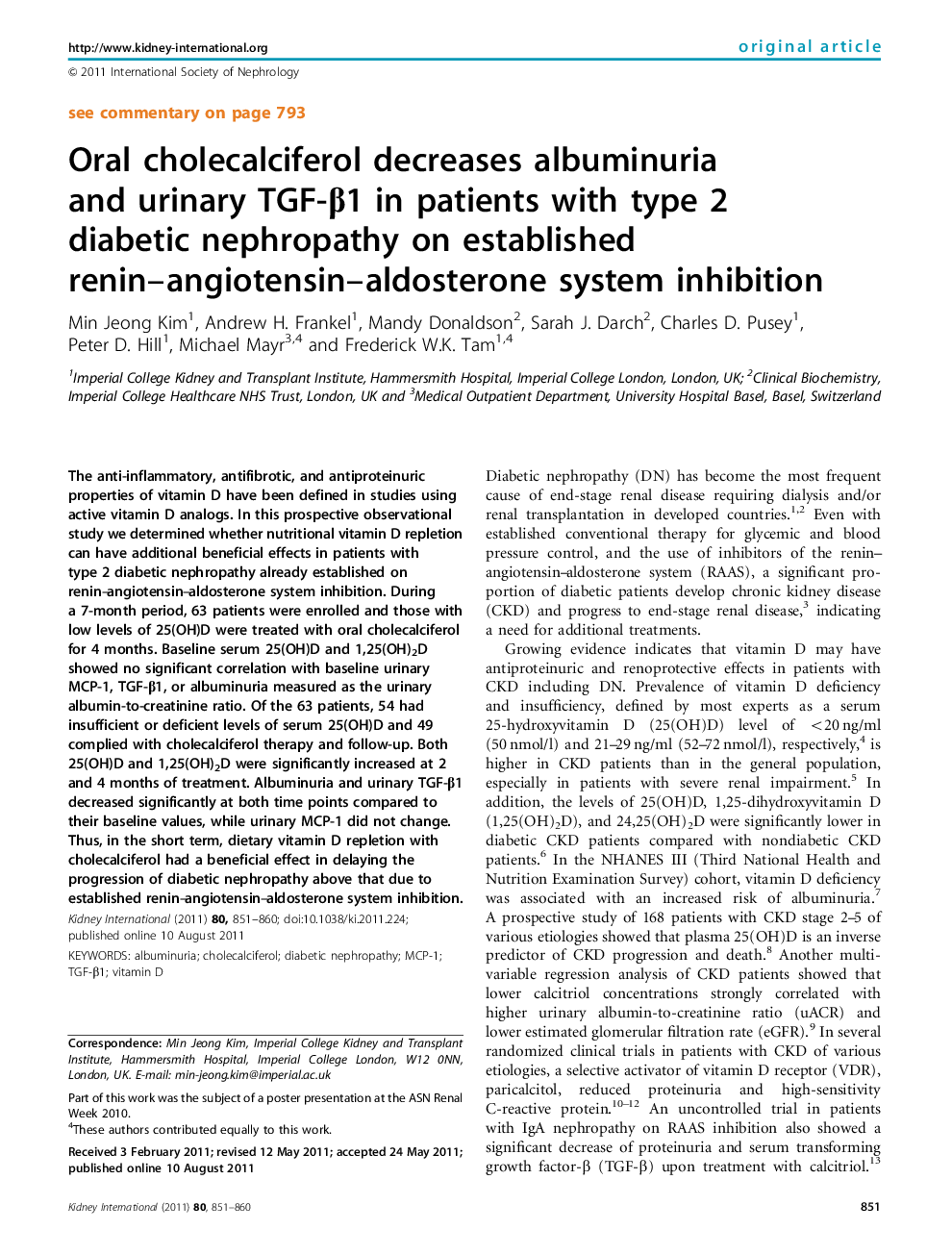| Article ID | Journal | Published Year | Pages | File Type |
|---|---|---|---|---|
| 3883923 | Kidney International | 2011 | 10 Pages |
The anti-inflammatory, antifibrotic, and antiproteinuric properties of vitamin D have been defined in studies using active vitamin D analogs. In this prospective observational study we determined whether nutritional vitamin D repletion can have additional beneficial effects in patients with type 2 diabetic nephropathy already established on renin–angiotensin–aldosterone system inhibition. During a 7-month period, 63 patients were enrolled and those with low levels of 25(OH)D were treated with oral cholecalciferol for 4 months. Baseline serum 25(OH)D and 1,25(OH)2D showed no significant correlation with baseline urinary MCP-1, TGF-β1, or albuminuria measured as the urinary albumin-to-creatinine ratio. Of the 63 patients, 54 had insufficient or deficient levels of serum 25(OH)D and 49 complied with cholecalciferol therapy and follow-up. Both 25(OH)D and 1,25(OH)2D were significantly increased at 2 and 4 months of treatment. Albuminuria and urinary TGF-β1 decreased significantly at both time points compared to their baseline values, while urinary MCP-1 did not change. Thus, in the short term, dietary vitamin D repletion with cholecalciferol had a beneficial effect in delaying the progression of diabetic nephropathy above that due to established renin–angiotensin–aldosterone system inhibition.
